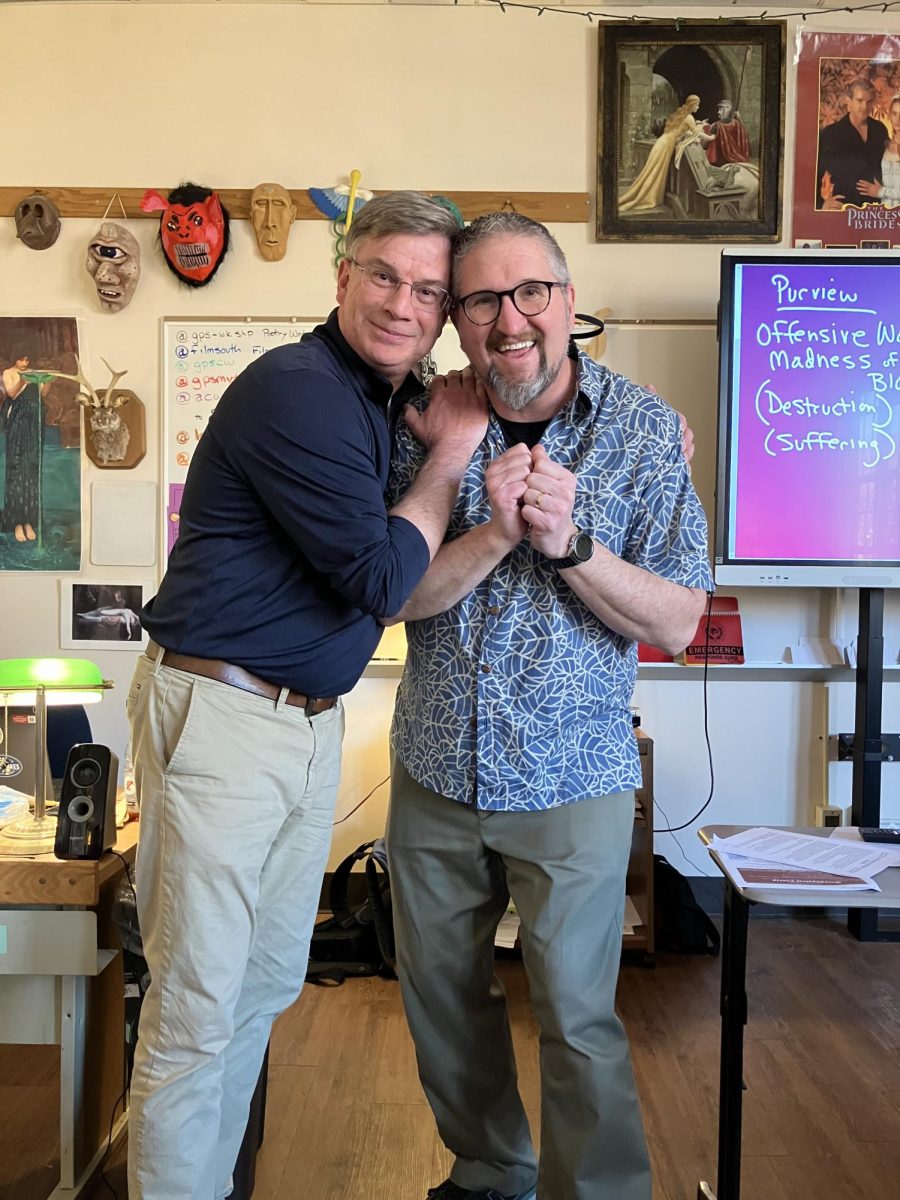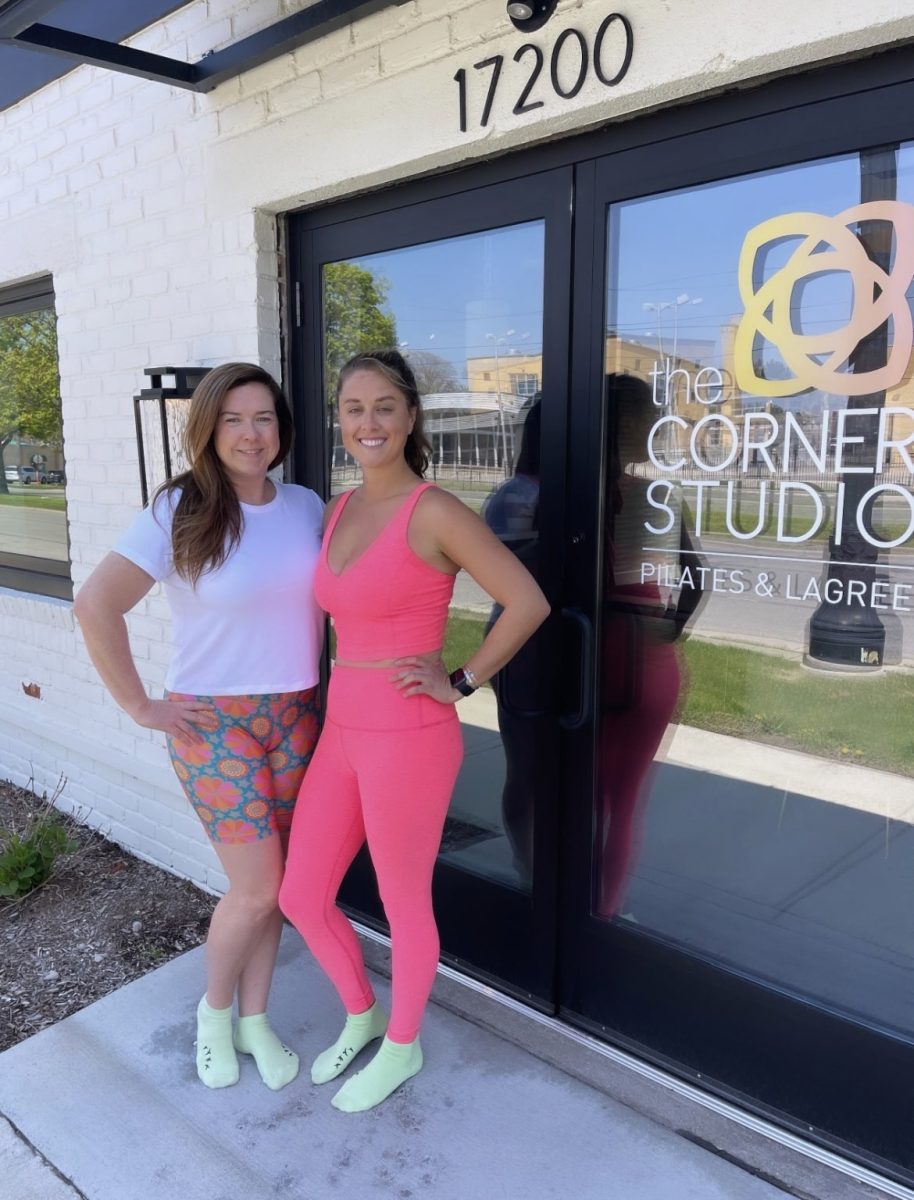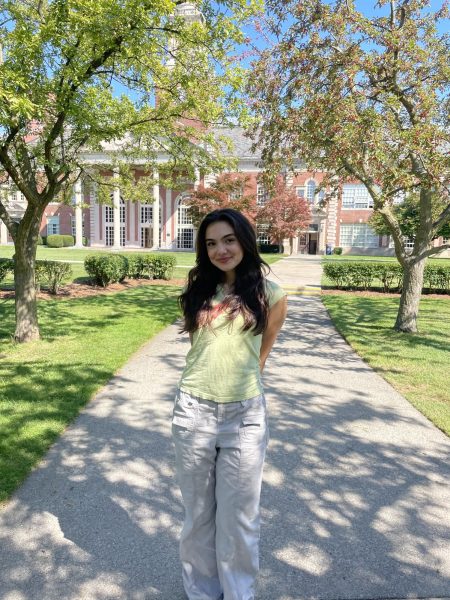Almost 30 years ago, two unassuming men walked into their first ever teaching job. Grosse Pointe South High School, in its 66 years of existence at the time, had suddenly become home to two iconic educational professionals, James Adams and Harry Campion.
After dedicating their craft to South’s student population for three decades, both men have decided it’s time for retirement. Similar in many aspects of their teaching, both Adams and Campion have adapted to diverse and fast-paced schedules in their respective fields. Adams, most commonly aligned with Biology, has instructed seven different curriculums and four different clubs. Campion, seasoned English teacher, taught 11 different courses and six different clubs. Overall, though reaching a bittersweet moment in their career, they each are meeting their retirement positively and to the fullest.
It all started for Adams when he was enrolled in graduate school with a degree in Biochemistry, searching for the answer to his overwhelming question: “What do I want to do?” One day, Adams was asked to teach a drug classification class of 85 nursing students, who needed to earn a 90 percent or higher to pass. The pressure was on for 22-year-old Adams, but this experience allowed him to realize his passion for helping students reach an understanding.
“High school teaching is never dull,” Adams said. “If you’re somebody that likes that, like I do, then that’s a good thing. It’s just a different thing everyday because you never know what you’re going to expect with 170 lives meeting yours. It’s a really unique thing that teaching has to it.”
Both of these faithful teachers have created countless educational, comical and significant memories in each of their students’ lives. Dylan DeMarco ’24, has experienced both Adams and Campion as teachers during his time, and values what he has learned.
“Mr. Adams has encouraged my curiosity,” DeMarco said. “There are very few subjects that can ignite that kind of fire in a youth like Biology and his teaching in that really inspired me. He’s totally done a bunch of good work to maintain and grow the biology program beyond the grade requirements.”
An important thing DeMarco continues to cultivate is his exposure to Greek Literature in AP Lit and how his learning experience has impacted how he thinks in day to day life.
“AP Lit is an awesome class because it’s got a teacher like Mr. Campion to spearhead it,” Demarco said. “Making sure we’re not just learning the content, but being able to analyze and think about concepts in ways that haven’t really been thought about before. He’s really great at challenging students to do that.”
In his senior year of high school, Campion taught for the very first time. Pursuing an independent study, he was the only advanced creative writing student in his class. One day, his teacher, with an unfortunate case of food poisoning, was unable to create lesson plans for his mythology class. So he sought out the most immediate solution to the problem: “Have Harry tell them why there are seasons!” And with that, Campion realized his ability to simplify complicated topics. So when it was time to reach a final decision on a career choice, Campion remembered this experience, and turned to teaching.
“My philosophy of education: if there’s not an enjoyment factor, you aren’t learning anything,” Campion said. “I think students can tell if you’re not having fun. So I try to have fun everyday. And I know I don’t succeed with every single student, but I think I’m able to make things at least enjoyable for the majority of my students, or at least I hope I do.”
Both teachers will be dearly missed as they approach the end of their final year at South. However, the memories of them bound to students and staff will entice their legacy as teachers to live on.
“What we do every day isn’t life and death,” Adams said. “So don’t treat it like it is, treat it like it’s a learning experience. Everything is not going to be perfect. I’m not going to teach everything perfectly, you’re not going to do everything perfectly. And that’s what school’s about. We both learn from it, teachers learn how to get better at it, and students learn how to learn more about it.”












































































